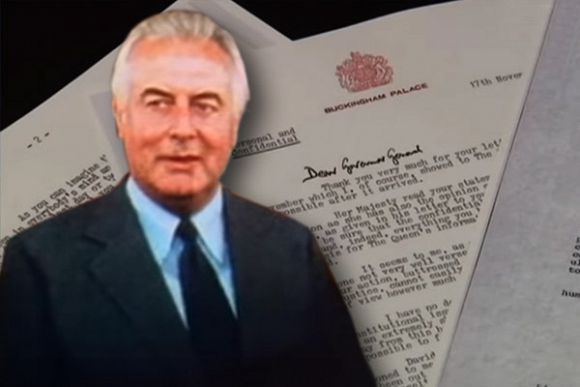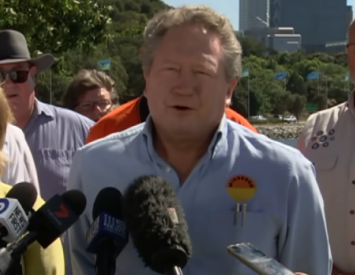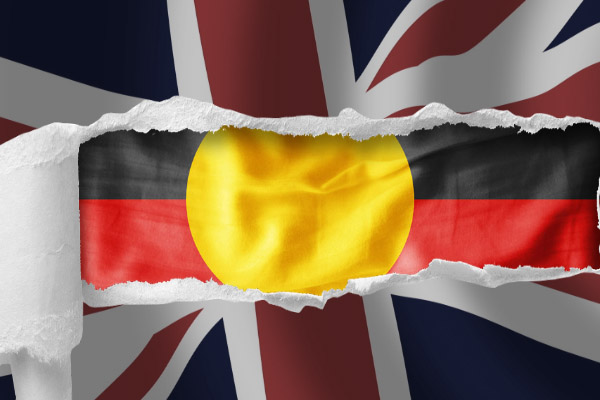Governance of Australia's regions should be determined by its natural resources and not imaginary borderlines, writes Dr Robert Wood.
IF THE CURRENT SITUATION in Victoria is anything to go by, we need to acknowledge that our government is not working as well as it should be. Quite simply, the system is broken and we need to fix it. That is why I support a republic.
So far, the COVID-19 crisis has been viewed through the lens of public health and economics and it is primarily a crisis with that shape. But, there are lessons to be learned when it comes to governance overall. Here, I think about state-federal relations, something that is highlighted by Clive Palmer’s High Court challenge to the West Australian Government and the Commonwealth’s changing position.
So, what is to be done? Quite simply, we need to abolish the states. They are an outdated hangover of a colonial system that does not reflect the lived reality of people on this continent. If we accept that we need a central government that takes care of international affairs or a federation at the end of the day, what else do we need when it comes to governments?
We should abolish state and local governments and replace them with regional authorities. Here, I think we need governments for individual cities, which means beefing up mayoral positions to approximate the premiers, but we also need specific bodies for regions that are both bigger and smaller than the current states.
To consider only where I am on the west coast, this would mean an authority for Perth that was neither state nor local. And it might mean bodies for the Kimberley, Pilbara, South West and elsewhere. The argument here is not only cultural, that each of these places has its own unique identity that needs preserving and reflecting in law, but also ecological.
Our government should be built on waterways, not on colonial lines that are arbitrary. Here, I am thinking of the watershed democracy proposed by John Wesley Powell. Working in the nineteenth-century American West, Powell had a vision of making government align with the ecological reality of a place. It meant recognising that water is what makes the world go 'round, not money.
This meant we needed governing authorities – call them states – whose boundaries were determined by the resources that were there. This was a watershed democracy, not a democracy where there is a separation between the geography and the cartography.
Consider the mess we are in with the Murray-Darling Basin. The states are in furious disagreement and one way out of this is to redraw the lines of federalism. Getting rid of one layer of government so we only have two (regional and federal) rather than three (local, state, Commonwealth) would mean a better republic that is responsive to our difficulties. That might free us up to provide goods and services in a system that is better designed for who we are now.
At the time of Federation in 1901, Australian democracy was built on over a hundred years of colonial governance. It was designed by a select group of individuals representing a select group of states and a select group of interests. The Commonwealth Senate reflects that most of all. Isn’t it time to return to the drawing board?
That is why we need to abolish the states. They do not represent our best way of organising government. A regional authority that had the power to administer the land in a way that was fair and equitable would benefit us all, including those who are being left out of the conversation. A watershed republic is one way to empower those downstream, to ensure we do not turn wild rivers into car parks, to make sure we take water as the most important resource and not an afterthought.
The republic is the central issue of our time when it comes to government. It speaks to the power of the constitution as a founding document. Surely, we need to consider all points of view when we come to rethink what is possible here. A republic is not only about the rejection of the British Crown or an Australian born head of state voted in by the people or the Parliament. It is about re-imagining what life on this continent can be like for those of us who care.
To think we could have regional governments contributing to a federation based on cultural and ecological individuality strengthens our mandate as citizens and better reflects where we are now. It also is more in keeping with the continent in its true nature, all as a way of considering why governments matter and our laws are worth respecting.
Dr Robert Wood is chair of PEN Perth. A Malayali with East Indian Ocean connections, he lives on Noongar Country in Western Australia. The author of four books, Robert has held fellowships at the University of Pennsylvania and Columbia University.
Related Articles
- The Australian republic must enshrine rights for all
- An Australian republic must be founded on a non-violent society
- Another Queen’s Birthday — isn’t it time to break free?
- Don’t let the Kiwis beat us to an Australian republic
 This work is licensed under a Creative Commons Attribution-NonCommercial-NoDerivs 3.0 Australia License
This work is licensed under a Creative Commons Attribution-NonCommercial-NoDerivs 3.0 Australia License
Support independent journalism Subscribe to IA.














